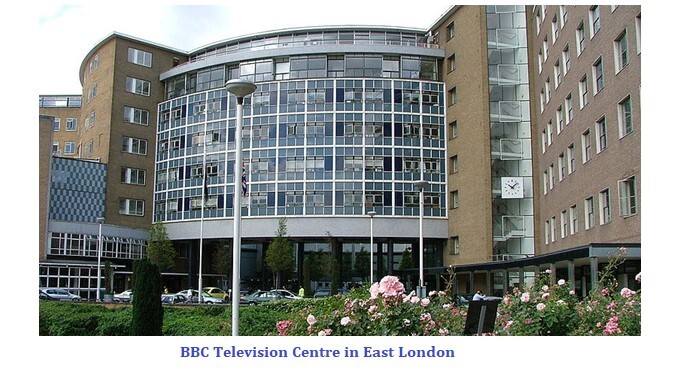
 Data Structure
Data Structure Networking
Networking RDBMS
RDBMS Operating System
Operating System Java
Java MS Excel
MS Excel iOS
iOS HTML
HTML CSS
CSS Android
Android Python
Python C Programming
C Programming C++
C++ C#
C# MongoDB
MongoDB MySQL
MySQL Javascript
Javascript PHP
PHP
- Selected Reading
- UPSC IAS Exams Notes
- Developer's Best Practices
- Questions and Answers
- Effective Resume Writing
- HR Interview Questions
- Computer Glossary
- Who is Who
What is the full form of BBC ?
What is the Full Form of BBC?
BBC stands for British Broadcasting Corporation. This is the biggest TV network. It is the world's biggest broadcasting organisation, with origins stretching over several continents. Over 3,5004 stars are employed full- or part-time, permanently, financially, and in a timely way by this company. The yearly television license fee serves as this business's funding source.
This company offers a wide range of services to the public, including newspapers, television, radio, online music, and many others. It is a publically funded system. In addition to English, the dominant language, they also broadcast the news in several regional tongues. London Broadcasting House is home to corporate offices. In Great Britain, it had a monopoly on radio until 1972 and on television until 1954

No machine-readable author provided. Martin Leng~commonswiki assumed (based on copyright claims)., BBC Television Centre, marked as public domain, more details on Wikimedia Commons
History and Evolution of BBC
BBC was started by John Reith in October 1922.
The first daily broadcast from Marconi's studio in London was made on November 14th, 1922.
In 1927, BBC was granted a Royal Charter; the name was changed to British Broadcasting Corporation from British Broadcasting Company.
At London's Alexandra Palace in November 1936, BBC started its television service.
During World War II, BBC had to keep shutting down the television networks but was able to inform, amuse, and warn the television audience and fans over the radio.
In 1953, it aired the Queen's coronation ceremonies. There were around 22 million viewers of the coverage of this ceremonial occasion. As a result of such a show, more televisions were sold because it made people want to have one at home.
The BBC's first television center, which later served as the organization's main office, opened in West London in June 1960.
In 1997, BBC launched BBC Online which quickly became recognized as one of the most reliable sources in the world.
A ten-year-old charter that was signed with the government in 2007 permitted the BBC trust to take over as the organization's primary regulating body, which allowed it to begin expanding its online offerings internationally.
BBC research on various Sectors
The researches done by BBC are
Why people Switch Industries
Another aspect of the new workplace is the shifting between industries. Following the pandemic, some workers are looking for jobs that give them a deeper sense of purpose. Long shifts and stress, on the other hand, may drive some people out of their industry. Whatever the reason, this movement provides insight into people's changing ideas regarding what a career should entail and how future job candidates may choose positions.
A third of the world's Garbage is produced by Industry
The stuff that we produce and toss away today also includes a wealth of resources that we could make use of. One tonne of mobile phones is estimated to contain 300 times more gold than a tonne of the highest quality gold ore, as well as sizeable amounts of silver, platinum, palladium, and rare earth?all elements that we continue to mine from the earth in order to obtain more Compared with less than 1% in top-grade or premium cables, the enormous amounts of copper inside the billions of cables around the world are a much more concentrated supply of reusable metal.
Challenges and Future of the BBC in the Digital Age
The BBC faces similar challenges to other public broadcasters, including the need to demonstrate that it is upholding its essential principles and reaching all UK audiences while remaining relevant in the digital era.
Audiences around the world are increasingly using streaming services, such as Netflix and Spotify, for pleasure. It's critical that the BBC maintains its position as a leading innovator in the digital engagement space. The BBC is guided by a separate mission that covers both entertainment and its other primary goals, which include giving all UK people accurate, reliable news and information.
Conclusion
The BBC, regarded as one of the best and most renowned broadcasting organizations in the world, excels in both its public service work and its business endeavors. An elite distributor, BBC Studios is a multi-award-winning production firm. It has been able to offer the greatest services globally and timely updates to its mission every five years. All other media outlets and broadcasters are held to the standards established by the BBC. Even after around 100 years, the British Broadcasting Corporation, or BBC continues to be the most popular channel and maintains its reputation.
FAQs
Q1. How many television stations does the BBC have?
Ans. Outside the traditional BBC1 and BBC2 channels, the BBC has quickly increased the scope of its programming programs since 2000. The corporation ran ten channels in 2007, including BBC3, BBC4, CBBC, Cbeebies, and BBC News 24 across analog and digital broadcast and satellite networks.
Q2. How is the BBC financed?
Ans. Our digital services, which include BBC News, Sport, Weather, CBBC, and CBeebies, as well as iPlayer, BBC Sounds, BBC Red Button, and our enormous archive of BBC World Service programming available on television, radio, and online in more than 40 languages The BBC was established by royal charter, and UK households pay a subscription fee to support it.
Q3. What is the purpose of the BBC?
Ans. The BBC frequently features news and world affairs-related programming. The services shown on BBC are translated into a large variety of other di languages so that they can be broadcast in other nations worldwide.

